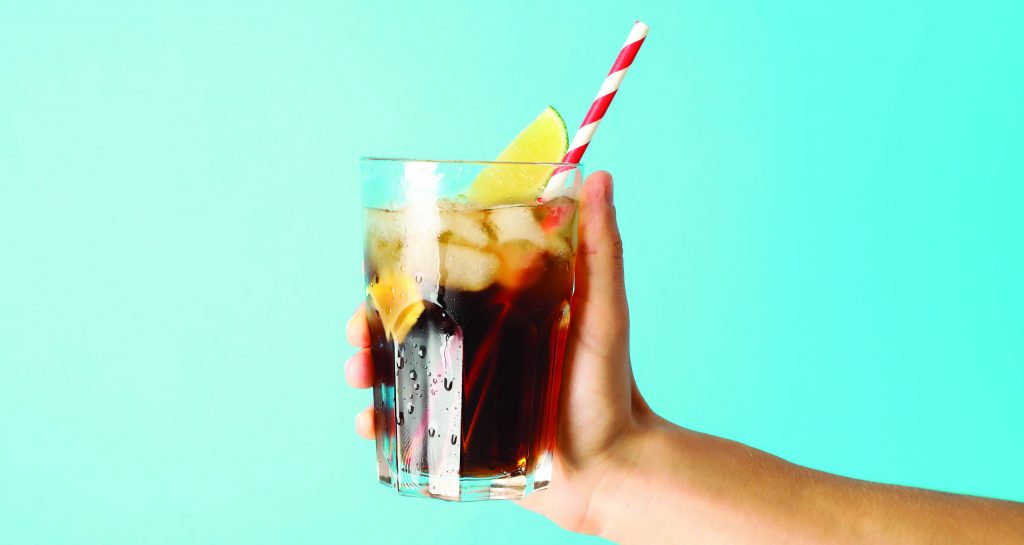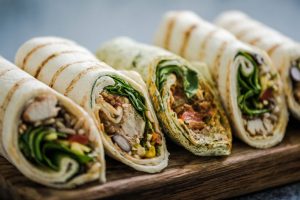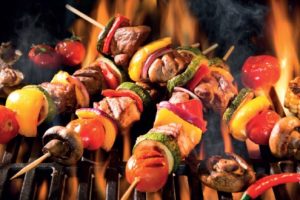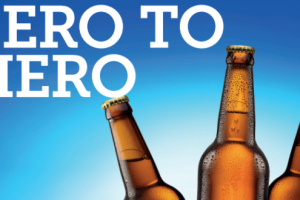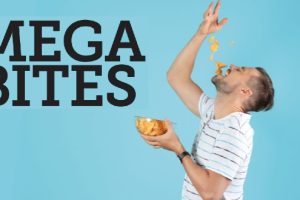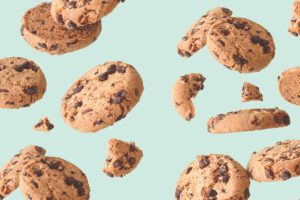Best sellers
To make the most of this valuable category, retailers need to make sure they are stocking the brands that really earn their place in the chiller in terms of sales. The Top 25 Soft Drinks table, which has been compiled by Nielsen exclusively for Independent Retail News, provides an overview of the performances of the leading brands across all trade sectors in the 12-month period to 20 August. This period includes the first five months of lockdown, which impacted on shopper demand as the nation adapted to life dealing with an epidemic, and the majority of the summer when sales were boosted by good weather. The top 25 brands account for the bulk of business in this category, so this new table provides statistical guidance for convenience retailers on the brands they need to stock and the rising stars they need to take notice of.
Launch activity
This is a category that has witnessed a frenetic level of launch activity in recent years and this rate of new product development shows no sign of slowing. The fact is that innovation has been an important driver of sales in recent years, as shoppers are keen to sample new taste experiences. New brands, flavours, packs and formats have been arriving at regular intervals and this makes it even more difficult for retailers to keep their range relevant during a time of changing tastes.
A few years on from the imposition of the government’s sugar tax, the category seems to have recovered as suppliers have updated recipes and introduced sugar-free and low-calorie variants to cater for changing tastes. Increasingly, they are putting the focus on these variants in terms of their marketing support and new product development to appeal to con-cerned parents and other health-conscious shoppers. Retailers should make sure these new “healthier” options are well represented in their chillers, because a growing number of soft drinks shoppers are looking for them.
Energy surge
The major players in this category benefit from advertising, sponsorship and promotional support to ensure they maintain a high level of consumer awareness and prompt purchase when shoppers view the soft drinks fixture. They also have the resources to invest in a regular flow of product launches to consolidate their position and keep interest alive.
The top four brands in the rankings remain unchanged from last year and between them account for some £2.9bn of annual business for retailers across all trade sectors. One big riser in the top 10 is Monster, which moves up two places in the listings to fifth place from last time around. The rise of energy drinks has been one of the big category trends of recent years and convenience retailers account for a big share of this business and are well placed to develop this sector.
Another brand making strong progress is Schweppes, which makes it into the top 10 from 12 last time around thanks to value sales growth of 24.2% during the year. There are some significant movers further down the table that could be set for even greater success in the years to come. These rising stars include Fever-Tree and Starbucks, which both had very successful years and are on a roll with strong growth rates. Despite a constant flow of new brands, flavours and pack formats, the category remains dominated by the big two cola brands – Coca-Cola and Pepsi – which have been category leaders for decades. At a time of changing tastes, these two brands remain at the top of the tree in sales terms, being worth almost £2.1bn in annual sales between them.
Product innovation
Coca-Cola remains the key brand in this category with annual business worth more than £1.4bn this time around when the value of sales went up by 4.6%. That makes it more than double the size of its nearest competitor, which means it has the biggest marketing budget in the category giving it the resources to reinforce category leadership year after year. It is also the brand that has been leading the category in terms of product innovation with several successful launches along the way and that strategy has continued in the last 12 months.
In February 2020, Coca-Cola European Partners (CCEP) added a lime flavour to its Diet Coke portfolio in a move designed to help retailers tap into flavoured cola sales. The launch was backed by a marketing campaign to raise awareness of the new arrival and the established flavour, Diet Coke Twisted Strawberry. Simon Harrison, the company’s vice-president of commercial development, said: “Our flavoured colas are now worth more than £102m, making 2020 the perfect time to innovate and offer our consumers a new experience.”
Road to recovery
CCEP followed up with a campaign for Diet Coke in June 2020 inviting people to take a moment to refresh during the lockdown. The first phase of the campaign ran on TV, radio and social media with poster and on-pack activity set to follow later in the year. Harrison said: “Since the country went into lockdown, we’ve seen people and communities selflessly go above and beyond to support others. As we begin to see what the new normal might look like and begin the road to recovery, the new Diet Coke campaign aims to remind consumers to take a step back and have a break for themselves.”
The following month, Coca-Cola Great Britain launched a campaign, “Open Like Never Before”, that aimed to mark a time of social and cultural change. The campaign launched following a seven-month pause in TV advertising, the longest ever for Coca-Cola, which saw the brand redirect resources to support relief efforts around the world. The integrated campaign included a sustained programme of market activity throughout the year and into 2021, with the aim to focus on supporting businesses.
New normal
Kris Robbens, marketing director for Coca-Cola Great Britain and Ireland, said: “The campaign is founded on the belief that we don’t just have to go back to normal following this huge change in everyone’s lives. Instead, it’s our ambition to move forward and make the world not just different, but a better, more open place. Most importantly, we’re using our platform to support and celebrate our customers and partners, many of whom are reopening their doors to communities after a very challenging time for the industry.
Second-ranked brand Pepsi had a very good year with value sales up 14.4% – more than three times the growth rate of its bigger cola rival. Pepsi generated retail business worth £663m during the 12-month period to August, when it was one of the fastest movers of the top 25 brands.
It was a busy year for the brand in terms of activity. Pepsi Max returned to TV screens with the launch of its Christmas campaign in November 2019. A campaign running until the end of December was designed to encourage shoppers to try a “new tradition” at Christmas and to showcase the brand’s flavour range, including the latest addition, Pepsi Max Raspberry. Brand owner Britvic said 60% of households had bought colas during the previous Christmas period and it urged retailers to “stock up ahead of the festive period and ensure Pepsi Max is well represented”. The company later claimed Pepsi Max Raspberry was the number one soft drink launch of 2019.
Promotional deals
In March 2020, Britvic launched an updated pack design for its Pepsi Max flavours range in a move designed to target younger consumers. The new look was rolled out across three flavours in all pack formats. The new packs appeared in a TV commercial and were supported by digital and in-store activity. They also featured in the brand’s promotional deals, including 330ml cans at ‘two for £1’ and 500ml bottles at ‘two for £1.70’, which were made available exclusively to convenience retailers during the summer.
Third-ranked Lucozadegenerated retail business of £416mduring the 12-month period to retain third place in the standings, although value sales were down this time around. Earlier this year, the brand added an energy drink, Lucozade Revive, which was available in two flavours – Lemon & Lime and Orange & Passionfruit – in 380ml bottles and four-packs. The new drinks featured “natural fruit flavours and no artificial colours”, as well as vitamins B3, B5, B6 and B12 to “help reduce tiredness”. The launch was supported by a £5m marketing campaign, including sampling and advertising throughout the summer of 2020. Lucozade said the range was aimed at shoppers who did not buy energy drinks – 59% of the UK population – yet were looking for a “naturally inspired uplift during their day”.
Breaking barriers
It said Lucozade Revive was designed to sit within the energy drinks category in the chiller, away from “everyday energy and stimulation” drinks and alongside “better for you” energy drinks, such as iced tea and coffee.
Zoe Trimble, head of marketing at Lucozade, said: “Lucozade Revive reflects the switch we are seeing as shoppers are looking more and more for an ‘everyday’ lift that carries credible wellness credentials. We know that some shoppers don’t buy into the broader energy category for different reasons: some are put off by the taste of some brands, others are worried about health, and some simply don’t like the brand positioning of some drinks. Lucozade Revive is designed to combat those barriers and help bring in new or lapsed energy shoppers.”
Red Bull retains fourth place in the table thanks to annual business of £397m, which was 6.1% up on the previous year. In April 2020, it launched no-sugar Red Bull Zero, in a move designed to “give consumers the choice to enjoy a zero-sugar product with a different taste than Red Bull Sugarfree”. The new variant was launched in 250ml cans with a retail price of £1.29. More recently, Red Bull launched a new watermelon flavoured limited edition for the summer of 2020. The new Red Bull Summer Edition, which was supported by an in-store marketing campaign, was available in 250ml cans from early July with an RRP of £1.35.
Enhancing performance
One star performer of the top 10 is fifth-placed Monster, which generated retail business of £288m thanks to a 17.1% value sales rise during the year. The big news from the brand in the most recent 12-month period was the launch of a new drinks range in October 2019 designed to fuel optimum performance for workouts and strength training. The new arrival – Reign Total Body Fuel – was a no sugar or calorie range that also contained a number of ingredients intended to enhance performance, including branched-chain amino acids, which are claimed to help prevent muscle protein breakdown. The drinks were also enriched with Vitamins B3, B6 and B12, which help reduce fatigue, and contained no artificial colours or flavours. Reign was made available in four variants: Melon Mania, Razzle Berry, Lemon Hdz and Sour Apple. The launch was supported by event and venue sponsorships, digitalcontent and in-store point-of-sale featuring global and local fitness influencers.
Simon Harrison, vice-president of commercial development at CCEP, said: “There is a growing demand among 18- to 35-year-olds who want a drink to help them achieve maximum results when they work out without sacrificing taste. Reign perfectly matches this demand by offering an energy boost with vital proteins and vitamins to help consumers perform at their peak and aid recovery long after the hard work is done.”
That was followed in January 2020 when CCEP added two flavours to its Monster Energy range “inspired by tropical flavours”. Monster Pacific Punch (£1.39) and Monster Ultra Paradise (£1.29) were launched in plain and price-marked packs to “help retailers meet the growing demand for flavour innovation in the energy sector”.
Premium taste
Sixth-ranked Robinsons increased retail business by 6.3% to end the year with sales of £269m and is another brand that benefited from activity during the period. In November 2019, the packaging of its Refresh’d range was updated in a move designed to “highlight the product’s 100% naturally sourced credentials”. The logo and messaging was repositioned to make it easier to read and to increase retail stand-out. Brand owner Britvic said 44% of UK households buy into the Robinsons brand and it is the nation’s number one squash brand.
A few months later, Robinsons expanded its Fruit Creations range with the addition of a Blackberry & Blueberry flavor, which was available from February 2020 in a one-litre bottle with a retail price of £1.99. Britvic said the flavour “delivers an intense and juicy burst of tangy blackberry, paired with rich blueberry, providing a premium taste designed to suit adult taste buds”. The company said the variant tapped into “people’s desire for healthier products”, as it contained no added sugar and twice the fruit of the core range.
Biggest mover
Seventh-ranked Innocent slipped two places in the rankings from last year but remains a huge brand, generating £261m worth of business for retailers every year. Next up is Fanta, which dropped one place in the table with annual retail revenue of £221m, despite a 2.6% increase in value sales. It was also a year of sales growth for Tropicana, which increased retail revenue by 3.1% to end the period with business worth £214m. The biggest mover of the top 25 brands is 10th-placed Schweppes, which enjoyed a 24.2% sales surge during the period to generate annual business worth £182m. The strong performance moves it up two places in the rankings from last time around and it could be set for bigger things if sales momentum is maintained in the year ahead.
Ones to watch
Outside the top 10, there are several significant players that remain big earners for retailers. These include Volvic, which is just one place outside the top 10, but is the leading water brand with annual retail business worth £132m during the most recent period.
Like many brands, it has expanded its range over the past year with the addition of sparkling fruit juice drinks. Volvic’s L’mon range has been available since the summer of 2019 in three flavours in 330ml recyclable cans. The launch was supported by a £1.5m marketing campaign featuring advertising, social media activity and sampling support.
Key workers
It stays just ahead of Fever-Tree, which moves up three places in the rankings thanks to a sales rise of 10.4% during the year, when it generated £132m of retail business. This performance makes Fever-Tree one of the brands for retailers to watch. Fever-Tree has been working closely with the key accounts team at Nisa during the coronavirus pandemic to identify workers and reward them with gifts to recognise their efforts. Rob Steadman, national convenience manager at Fever-Tree, said: “We chose to run an initiative whereby key account retailers could nominate particular staff who, during this time, deserve recognition or just need a pick-me-up.”
Major players
There are five brands in the rankings behind Fever-Tree – Evian, Irn-Bru, Highland Spring, Dr Pepper and Ribena – which each generated retail sales of £100m-plus during the recent year and so remain significant players in this category for impulse operators.
Lower down the table is another rising star of the category – Starbucks. The chilled coffee brand moves up six places from last time around to be ranked at number 20 following a 20.8% surge in sales to end the year with business worth £72m.red bull
 Talking Retail Grocery and product news for independent retailers
Talking Retail Grocery and product news for independent retailers
